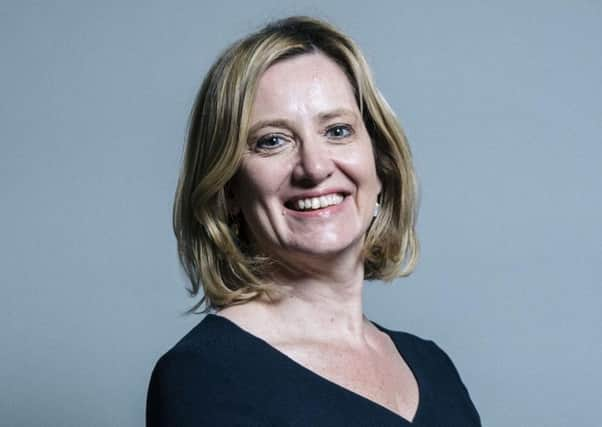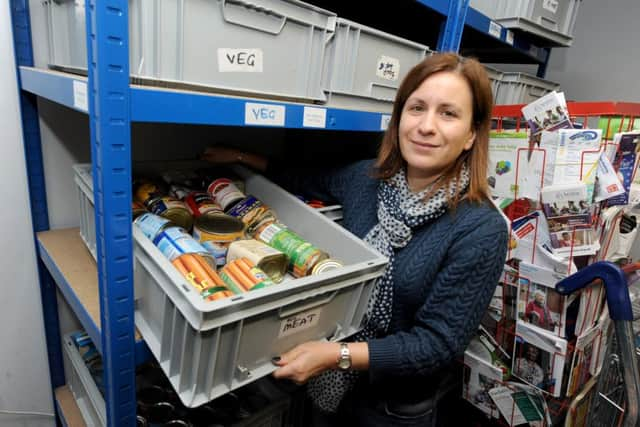Hastings Foodbank referrals up by 106 percent since Universal Credit launch


Since the new combined benefit scheme came to Hastings in December 2016, referrals to Hastings Foodbank has more than doubled compared to the previous two year period.
The foodbank says it is now distributing a tonne of food a week to those in need.
Advertisement
Hide AdAdvertisement
Hide AdMs Rudd, the Secretary of State for Work and Pensions, made headlines yesterday after admitting in the Commons that Universal Credit had pushed people towards foodbanks.


Natalie Williams, community engagement manager at King’s Church, where Hastings Foodbank is based, said the introduction of Universal Credit was “undoubtedly the biggest factor” to the increase.
Those applying for Universal Credit face a minimum wait of five weeks before receiving their first payment.
Natalie said: “If I did not have any income for five weeks, I think I would struggle.
Advertisement
Hide AdAdvertisement
Hide Ad“If it happened to me I have my mum I could call, I could ask to borrow some money, but not everyone has that.”
Natalie says it is believed there are still some 14,000 people in Hastings waiting to be moved over to Universal Credit, including 7,000 who have long term health conditions which have put them out of work.
She said: “We are concerned there are so many people still to come on to Universal Credit with the impact if will have on poverty in Hastings.
“Not just foodbank, but homelessness has gone up and I think that is a stretch on local services, and there’s the cuts not only at a local government level but at county government level.”
Advertisement
Hide AdAdvertisement
Hide AdShe added: “It’s also the pressure it puts on volunteers at other charities.
“When you see people who are distressed and suicidal, it obviously has an impact on you too.”
The roll-out of Universal Credit in Hastings has been paused, and the foodbank hopes it can work with Amber Rudd to fix some of the flaws in the system.
The team met with Ms Rudd before Christmas for a ‘constructive’ meeting about Universal Credit and the impact it is having locally.
Advertisement
Hide AdAdvertisement
Hide AdNatalie said: “We have met with Amber to talk about this issue and had what we felt was a very constructive meeting.
“Having an MP who is the Work and Pensions Secretary is a real opportunity because she can see the poverty on her doorstep, she can make some changes to Universal Credit which will make it more compassionate.
“The most vulnerable still have not come on to it. And they are the ones who have now had a bit of a reprieve.
“Amber said the reason she is pausing it is to get it right.
“I hope that happens.”
Advertisement
Hide AdAdvertisement
Hide AdAlthough the foodbank is now distributing a tonne of food a week to those in need, Natalie says locals have stepped up to ensure supplies keep flowing.
She said: “We are at that point now we are giving out over a tonne of food a week, but we have seen donations increase as we tell people what’s going on.
“We are so grateful for that. It’s one of the things I love about Hastings.
“A lot of people realise they may need the foodbank some day if something happens. And I think most people know someone who has needed a foodbank.”
Advertisement
Hide AdAdvertisement
Hide AdA spokesperson for the Department for Work and Pensions said: “We have long acknowledged that there were issues with the initial roll out of Universal Credit and that’s why we’ve listened and made improvements, such as extending advances, removing waiting days, and introducing housing benefit run on.
“These changes are giving support to vulnerable people who need it most, while at the same time helping people get into work faster.”